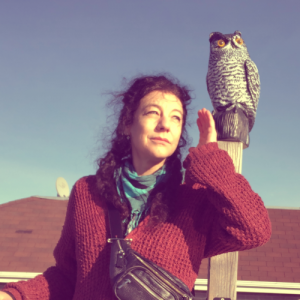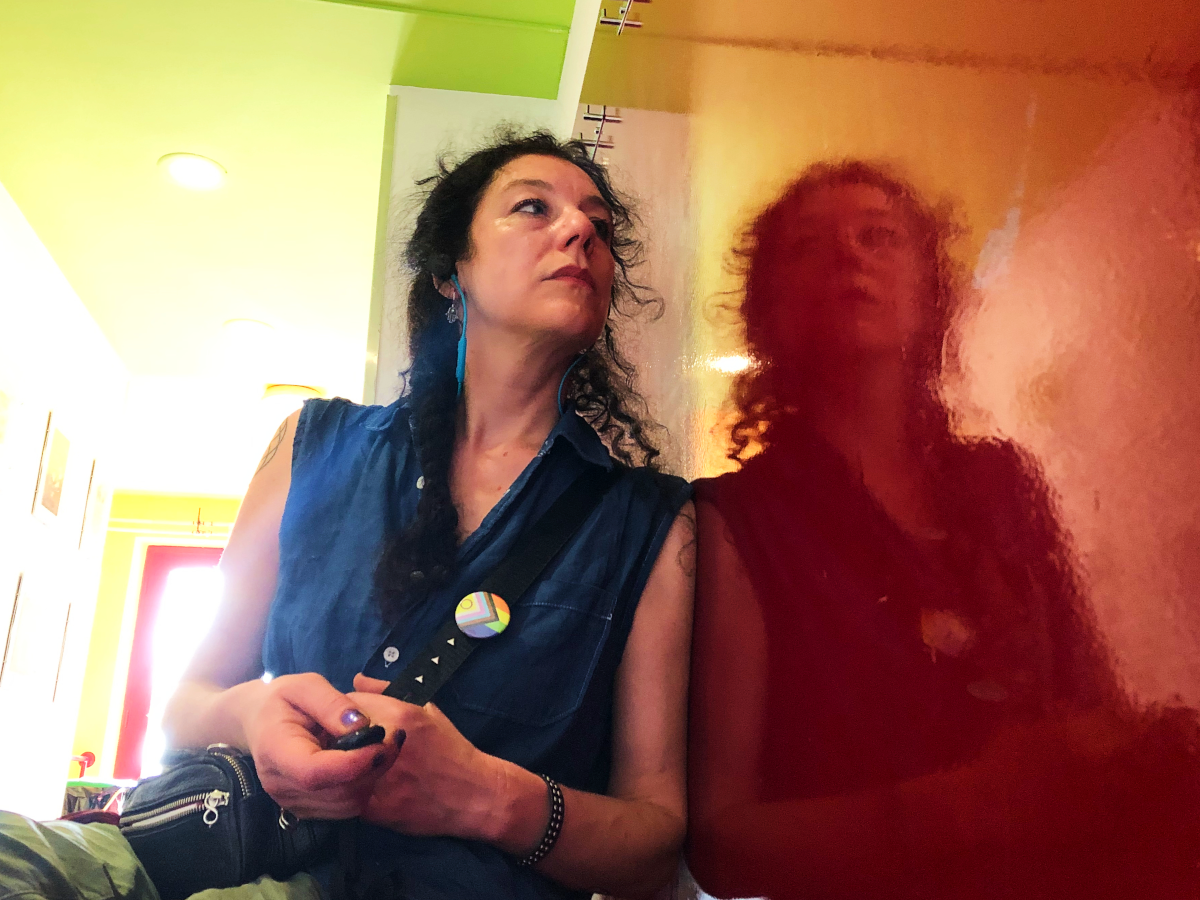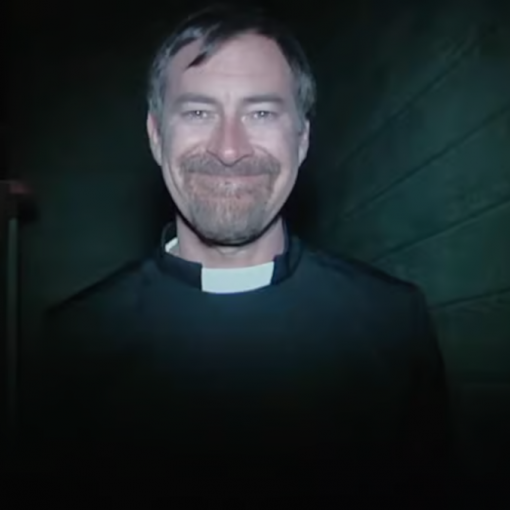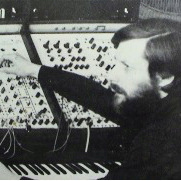 A member of Thee Silver Mt Zion and a co-creator of the avant-klezmer group Black Ox Orkestar, Jessica Moss has collaborated and played with the likes of Daniel O’Sullivan, Sarah Davachi and Big|Brave.
A member of Thee Silver Mt Zion and a co-creator of the avant-klezmer group Black Ox Orkestar, Jessica Moss has collaborated and played with the likes of Daniel O’Sullivan, Sarah Davachi and Big|Brave.
To accompany her fifth solo album, Galaxy Heart on Constellation, she is on tour throughout Europe. Mr Olivetti put some pertinent questions to the Montréal-based composer and violinist.
This album feels like a rather wild and visceral ride in places; your guitar playing being especially vibrant. Does this release feel like your ultimate personal endeavour? And if so, how much was the solitude of lockdown key to this?
It was a pretty wild and visceral ride to make!It’s hard to go back to that time in my mind to be honest. I’ve found many who relate to this; that the lockdown year feels like lost time. Like it’s become a distant hazy memory of a nightmare. Completely eclipsed now by the visceral absolute shit we’re currently surrounded by. But it definitely provided me the bananas mental state that allowed me to just play the guitar as I love to play it, even though I am certainly not a guitar player on most days of the year.
I think my ‘ultimate personal endeavour’ is to find a better balance between work and not-work, to be honest. The process I inadvertently began when I started recording the music that would eventually become Phosphenes and Galaxy Heart nearly swallowed me whole…
But it’s very lovely and gratifying to be talking about it now, and I appreciate the opportunity to consider it with some distance.Jim White is one of the most exciting and intrepid drummers around at the moment. His playing adds his own slant to your already personal tracks. I really enjoyed his recent playing with Daniel Blumberg and was wondering how your relationship with him came about and how writing with his style in mind affects the writing process?
I genuinely can’t remember the first time I met Jim. It’s certainly been quite a few years, or maybe quite a few decades..?We’ve mostly worked together on projects by the great film maker and dear friend Jem Cohen. I love his playing, I mean, how can you not? But it happened in the opposite order; backwards seems to be a way I often operate, for better or for worse.
The music came first, the perfect drumming was a gift I wasn’t expecting, but now can not at all imagine the album without.https://www.youtube.com/watch?v=cSlN11Jqm7g
You seem happier adding vocals to this album than previously and you mentioned something about removing self-imposed barriers. How did this lovely sense of freedom come about?
Hmm… ‘happy’ is an interesting choice of words… Actually I think it was more like I was losing it a little. I mean we all were at the time.I didn’t have a plan when I started recording for what became Phosphenes and Galaxy Heart. I had the opposite — just a desire to play without any agenda, without thinking about what it was going to be, and therefore not having to worry about the things that usually go along with album-making; how anything would fit with anything else, how to restrain myself to make sure everything can fit on two sides of vinyl.
I wanted to scream in my life, so I let myself scream in this private music world instead. I think maybe ‘abandon’ is more like it. And then the music just swept me up into it and I couldn’t stop working on it.There is a real touch of melancholy to your violin playing at times. Does the instrument draw that from you or is it the other way around?
I like this question. Maybe me and the violin are one at this point. At least I often feel like I speak more clearly through the music that comes out of it then the words that come out of my mouth.And I suppose we are both pretty melancholy at our core.
I am really looking forward to your Bristol visit and to this new material being reproduced live. What sort of band will you be assembling for the upcoming tour?
A band of invisible friends! No it’s actually just me on stage.Much of the music that goes on my records is unplayable live, or at least unplayable solo without the use of computers and backing tracks, both of which I don’t use on stage. I do a lot of my composition work in the editing stage, and I freely use many versions of myself to achieve the music how I hear it in my head.
So that leaves a smaller selection of pieces that I can adapt to playing solo, and I invent new versions of these specifically for performance. The others wait patiently.I still have a romantic image in my mind of the scene based around Constellation and Montréal as a real artistic enclave. Is that still the case twenty years on or is it a bit more disparate now?
I would say yes, and yes. Of course things change, and it’s hard to see outside from in. But there is no doubt that those of us lucky enough to have been breathing this air for so long — so long that we may not even notice it a lot of the time — have come up surrounded by something special. It’s good to be reminded sometimes, to make sure not to take it for granted.
Black Ox Orkestar was a fascinating musical endeavour, introducing a wider audience to klezmer-based music. Did it accomplish what it needed and run its course, or is it still on the backburner?
Well, do I have good news for you 🙂I was fortunate enough to see A Silver Mt Zion a couple of times; particularly memorable was a show around the Horses In The Sky period. The group came on like a gang with an us versus the world feeling and I wondered if you missed that sense of group connection or has the solo work moved you on from there?
Yeah, I do miss it. Exactly that part of it. But for me, what I do now carries that spirit within it, even if it has been mostly a solo venture. I always feel like there’s some of it with me, wherever I go, whatever I do. I’ve built my life around these connections, they don’t disappear for me, even if I’m no longer surrounded by the physical presence.And playing alone brings a whole other dimension with it that I didn’t experience in the same way when I was so surrounded, which is the connection with the audience. I never felt that was my role, in a way, and now I do and I take it very seriously. And love it very much.
I am always interested in the interaction between musicians and your playing relationship with Thierry Amar seems to transcend everything. How important is that to your working process?
I am also always fascinated by this — in fact it’s usually my favourite part of watching a band play. Well that and watching the audience watching the band play, which never ceases to move me.It’s true that I have very deep musical connections with some people. Where when playing, improvising or working on a song, I can feel instantly at home, comfortable… like how I think of the word family.
And I like the words ‘transcends everything’; because anyone who plays music with other people knows that at least half the time it’s just very vulnerable people trying to explain with words what only makes sense with ears and hearts, and that can be fuckn hard. Can cause rifts and tensions and sometimes it can feel like the end of the world… But if you’re lucky, that connection can survive those moments, and it makes you all stronger.What music other than your own are you currently enjoying, if any? Are there any groups that you have happened across recently that the readers might enjoy?
I am starting a new project this year, working with a dance company in Australia (Dancenorth). I’m basically tasked with creating a soundtrack for the sunrise. I’m really excited to start working on it!In preparation I’ve been going back and listening to some of the classical music that moved me as a kid, that made me feel like worlds were opening in my head and that stories were clearly being told. Appalachian Spring by Aaron Copeland, Fantasia on a Theme by Thomas Tallis, some parts of the Firebird Suite by Igor Stravinsky… um, this is a pretty nerdy answer haha.
Do you ever have a long-term plan for your musical journey or are you more reactive, changing your direction depending on who or what comes across your path?
Long-term plan, what’s that??All I know is that since I fell, unplanned, into this world of making solo music, I’ve been extremely driven from something inside me to do what I’ve been doing. But I never assume that anything will last, or that anything will be possible beyond whatever I’m currently engaged in working on. I always feel that any record might be my last, any tour might be my last.. Not that I would ever want that, but I actually think it’s healthy in a way. I have no assumptions and I always have multiple Plan Bs (and Cs and Ds) floating in my head, just in case it ever comes true.
So that way every day that I don’t have to move on to one of them, is a day I feel pretty fucking lucky and grateful.Thanks for the interview!
*




